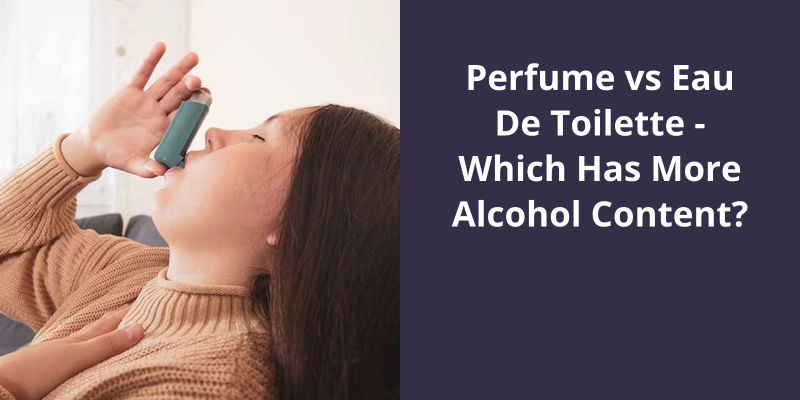Yes, body spray does need a preservative. In simple terms, preservatives are used in body sprays to prevent the growth of bacteria and fungi, ensuring that the product stays fresh and safe to use over a period of time. Without preservatives, body sprays can become spoiled or contaminated, leading to potential health risks. Moreover, preservatives help in extending the shelf-life of the product, ensuring it lasts longer after it has been opened. Therefore, the use of preservatives in body sprays is both crucial and beneficial.

Do You Need a Preservative in Lotion?
Preservatives in lotion help prevent the growth of potentially harmful bacteria, mold, and yeast. Without a preservative, the product could start to spoil and may pose a health risk to the user. As a result, the use of preservatives is vital in skincare as it ensures the longevity of a product and prevents it from being rendered ineffective.
Not all preservatives are created equal, and certain types may cause skin irritation or other health issues. Therefore, consumers should be diligent in checking for safe preservatives such as phenoxyethanol, sodium benzoate, and potassium sorbate.
However, some natural skincare brands choose to avoid preservatives entirely and instead use natural antibacterial and antifungal ingredients like tea tree oil, neem oil, and grapeseed extract. While these natural alternatives can be effective preservatives in lotion and other water-based products, they may not offer the same level of protection as synthetic preservatives.
Consumers should be aware of the potential health risks associated with certain preservatives, making it essential to choose products that use safe and effective preservatives or natural alternatives. With careful consideration, it’s possible to maintain healthy, hydrated, and beautiful skin without compromising safety.
The Impact of Preservatives on the Environment and Sustainability in Skincare.
This topic discusses how the use of preservatives in skincare products affects the environment and sustainability.
While anhydrous products like body oils generally don’t require preservatives, certain circumstances could warrant the use of one. If the product is at risk of exposure to water or excess moisture, a preservative may be necessary to avoid contamination and maintain it’s quality.
Do Body Oils Need Preservatives?
Body oils are a popular choice for skincare enthusiasts who prefer natural, nourishing products to the harsh chemicals found in many traditional lotions. One of the greatest benefits of using oils is that they’re typically made from all-natural ingredients, which means they often don’t contain preservatives. However, some oils can still pose a risk of bacterial growth if theyre exposed to moisture, which is why it can be wise to add a preservative in certain situations.
Preservatives are added to skincare products to prevent bacterial growth and maintain their freshness. When it comes to anhydrous products like balms and oils, the lack of water content means that they’re less susceptible to contamination and spoilage. Because of this, many manufacturers of these products will forgo preservatives altogether, as there’s less likelihood of contamination. However, it’s still important to note that anhydrous products can still be exposed to moisture, which could introduce bacteria and other harmful substances.
When deciding whether or not to add a preservative to an anhydrous product like a body oil, there are a few factors to consider. First, it’s important to take note of the products ingredients to determine whether or not they’re likely to spoil. Additionally, it’s important to consider how the product will be used and stored, as exposure to moisture can introduce bacteria and spoilage.
In general, products that will be used quickly and not exposed to moisture can generally skip the preservative. However, for products that will be used over a longer period of time or in potentially damp environments, a preservative can be an important safeguard against contamination and spoilage.
Types of Preservatives Commonly Used in Skincare Products and Their Efficacy.
- Parabens – widely used and effective, but controversial due to potential health risks
- Phenoxyethanol – a gentler alternative to parabens, but may be less effective
- Benzyl alcohol – a natural preservative with limited efficacy
- Chlorphenesin – proven effective for preventing bacterial growth
- Formaldehyde releasers – effective but may cause skin irritation
- Quaternium-15 – effective but may release formaldehyde and cause skin irritation
- Phenethyl alcohol – a natural preservative with limited efficacy
Now that we’ve established that oil-based products don’t require preservatives, let’s delve deeper into the world of homemade body butter. While body butters can be a luxurious and effective addition to your skincare routine, there are certain things you need to keep in mind to ensure that your creation stays fresh and safe to use.
Does Homemade Body Butter Need a Preservative?
However, if youre including water or similar liquids in your homemade body butter, then it’s crucial to include a preservative. Without it, harmful bacteria and mold can grow, potentially leading to skin irritation or infection. Even if you don’t see any signs of spoilage, there could still be bacteria present that arent visible to the naked eye.
They come in various forms, such as liquid, powder, or tablets, and can be added directly to your recipe during the melting or blending process. Some natural options include vitamin E oil or essential oils with antimicrobial properties, but it’s essential to research these options thoroughly as they may not provide adequate protection against bacteria.
Use clean utensils and work surfaces, and avoid introducing any moisture into your product. Store it in an airtight container and keep it in a cool, dry place to minimize the risk of spoilage.
While it may be tempting to skip this step, the risks of not doing so outweigh the benefits, and preservatives are easy to obtain and use. With proper precautions and ingredients, you can enjoy the benefits of a homemade, natural body butter while ensuring it’s safety and longevity.
What Are Some Common Preservatives Used in Homemade Body Butter?
Preservatives used in homemade body butter are substances added to prevent the growth of harmful microbes like bacteria, mold, and yeast to keep the product fresh. Some common preservatives found in homemade body butter are vitamin E oil, essential oils, honey, grapefruit seed extract, and citric acid.
When it comes to creating skincare products at home, many people wonder whether or not they need to add preservatives. While some products require a preservative to prevent bacterial growth and prolong shelf life, others do not. This includes body balms, like body butter and lip balm. Since they don’t contain water, you can skip the preservative and create a simple, all-natural product for your skin.
Should I Add Preservative to Body Butter?
Body butters and balms are a popular cosmetic product that provides lasting moisture to the skin. They’re made primarily from oils and butters, and often contain additional ingredients like essential oils or fragrance. While these products don’t contain water, they can still be susceptible to bacterial growth if not formulated correctly.
When considering whether or not to add a preservative to your body butter or balm, it’s important to assess the risk of contamination. If you’re making a small batch for personal use or to give as gifts, you may not need to worry about adding a preservative. However, if you’re producing a larger quantity for sale, it’s important to take measures to prevent bacteria growth and keep your customers safe.
The most commonly used preservatives in cosmetics include parabens, phenoxyethanol, and formaldehyde releasers. However, there’s growing concern over the safety of these ingredients, and many consumers are opting for natural preservatives like vitamin E or essential oils.
Another factor to consider is the shelf life of your product.
It’s important to know the ingredients in the skincare products you use to avoid any adverse reactions. Parabens and formaldehyde-releasing preservatives are two preservatives that are commonly used in these products. However, parabens aren’t water-soluble and can penetrate the skin, which is a cause for concern.
Which Preservative Is Used in Creams?
This makes them effective at preventing the growth of bacteria and mold in cosmetics, but it also means that they can potentially accumulate in the body over time. Formaldehyde-releasing preservatives, on the other hand, are less commonly used due to concerns over the potential toxicity and allergenicity of formaldehyde.
Alternative preservatives that are becoming more popular include plant-derived preservatives such as phenoxyethanol, sodium benzoate, and potassium sorbate. These preservatives are generally considered to be safer and more eco-friendly than traditional preservatives, though they may not be as effective at preventing microbial growth.
When choosing a cream or other cosmetic product, it’s important to read the ingredients list carefully to determine what preservatives are used. If you’ve sensitive skin or are concerned about the potential health effects of certain preservatives, you may want to choose products that use alternative preservatives or are preservative-free.
There are also some natural preservatives that can be used in homemade or small-batch cosmetics, such as vitamin E oil, rosemary extract, and grapefruit seed extract. These natural preservatives may not be as effective as synthetic preservatives, but they can still help to extend the shelf life of homemade products.
Now that we’ve discussed some of the best preservatives for hair oils, it’s important to understand why adding a preservative is necessary in the first place. Without a preservative, hair oils are susceptible to bacterial or fungal growth, which can lead to an unpleasant smell and even infection of the scalp. Adding a preservative not only extends the shelf life of the product, but it also ensures that it remains safe for use over an extended period of time. So, what other factors should you consider when choosing a preservative for hair oils? Let’s find out.
What Is the Best Preservative for Hair Oils?
Preserving hair oils is essential to maintain their quality, texture, and effectiveness. Without proper preservation, hair oils can become rancid and lose their beneficial properties. However, choosing the right preservative can be a challenge as there are many options available in the market. The best preservative for hair oil is one that’s effective, safe, and doesn’t cause irritation to the skin.
They’re considered to be very mild and non-irritating, making them safe for use on all types of skin. These preservatives work by inhibiting the growth of bacteria and fungus that can cause hair oils to spoil and become unsafe for use. Additionally, they’re easy to use and don’t alter the texture or scent of the hair oil.
Some preservatives may interact with certain ingredients or be unsuitable for specific hair types. Therefore, it’s always essential to follow the manufacturers instructions and seek professional advice when in doubt.
Potassium sorbate and sodium benzoate are two excellent options, while essential oils such as rosemary oil and oils high in antioxidants can also be used as natural preservatives.
Conclusion
The presence of water can facilitate the growth of harmful microorganisms that can spoil the product or cause harm to the user's skin. Overall, selecting the right preservative or water type is a vital part of the formulation process to deliver a safe and effective product that meets consumers' needs and expectations.





